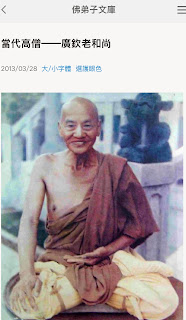南禪朋友好!
剝脫6
算一算已經四十幾年了,還記得18歲的我那時還沒出家,
第一次踏進佛教書局一進去看到一本書,名稱《中觀論》我拿
出來翻,想買,
老闆說:你知道《中觀論》是什麼?
我說:我不知道。
他說:這本書沒有人(高聲加重語氣)看得懂你真的要買嗎?
那一本書是古文精裝本跟後來的印順導師的《中觀論講記》比
起來它根本就是原文。
衝著一股莫名的喜好,當時算是比較貴的價格買了,因為它是
精裝版,緣由於一種莫名的、說不上來的喜好,沒想到日後一
直跟它結緣。
當時的我沒有任何佛教的知識,那書局其他的佛學書本我也沒
有拿起來看,就是拿那一本《中觀論》想買,買完,就出去。
有些時候我去回想當年也常驚呼這實在是太神奇了!
即便是現在,跟隨我學佛的大德去新竹正聞出版社買印順導師
的《中觀論講記》聽說正聞出版社的新竹負責人也是跟他們
說:你真的要買這一本嗎?(哈⋯⋯)
至今,我不得不承認人世間的宿緣是多麼厲害的在主導人生,
《中觀論》主導著我費盡心思只想把它搞清楚。
(為了弄懂不一不異的「一」,除了佛法論典外,進而讀完西
洋哲學史,想清楚西洋哲學對「一」的看法,外加掛在大腦的
八不思索。)
人,過去悠悠的歲月裏只摸著一些些,
「空」是過去式,現在式、未來式。
半寄
Peeling Off 6
Greetings, friends of NanZen!
It’s been over forty years from now. I remember when I was 18, before I became a nun, I went into a Buddhist bookstore and saw a book called Mūlamadhyamakakārikā. I picked it up, started flipping through it, and decided to buy it.
The shopkeeper asked, ‘Do you know what this book is about?’
I said, ‘No, I don’t.’
He replied, ‘This book is so difficult that no one can understand it. Are you sure you want to buy it?’
The book was an ancient classical hardcover edition, and compared with later works like Venerable Yinshun's Commentary on the Mūlamadhyamakakārikā, it was nearly abstruse as the original text. Driven by strange, inexplicable fondness, I bought it, despite it being relatively expensive because it was a hardcover edition. I didn’t know back then that this book would play a major role in my life.
At the time, I didn’t know anything about Buddhism, and I didn’t pick up any other books from the store—just that one, and after buying it, I left.
Occasionally, when I recall this, I can't help but exclaim with marvel, “This is really incredible!”
Even till now, I was told when the lay practitioners who follow my teachings went to the Zhengwen Publishing House in Hsinchu to buy Venerable Yinshun's Commentary on the Mūlamadhyamakakārikā, the person in charge there also asked them, "Are you sure you want to buy this one?" (Haha…)
Looking back, I must admit how powerful the forces of past connections are in shaping our lives. Mūlamadhyamakakārikā has guided me and I immerse myself in trying to comprehend it. (To understand the concept of ‘the same’ in ‘neither the same nor different’, I not only studied Buddhist texts but also read through the history of Western philosophy. And then I compared them with my interpretation of "Eight Negations", trying to understand their view of ‘neither the same nor different’.)
Investigating 'Śūnyatā’ has become deep exploration in my soul, and no other theory fascinates me more than ‘Śūnyatā’. Over the years, I’ve only touched on a little of it—'Śūnyatā’ is the past, present, and future.
Master Banji



